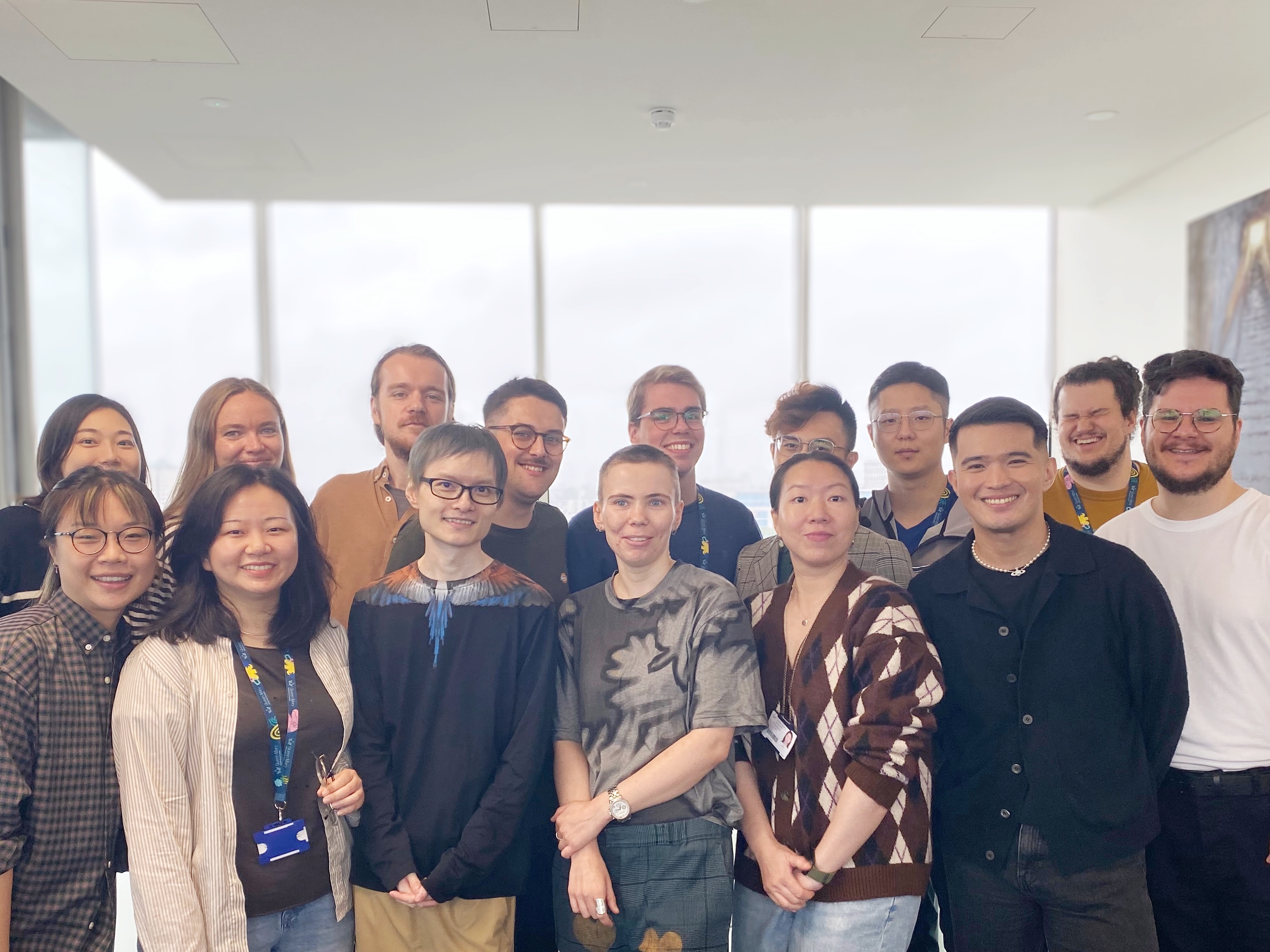PhD programme
Our PhD programme in Linguistics attracts outstanding scholars, and competition for places and for funding is at the highest level. PhD students work closely with academic staff at the very forefront of the discipline and are part of a well-resourced, intellectually stimulating, friendly and supportive environment.

In order to register your interest in our PhD Programme, and ensure we offer you the best advice about supervisory possibilities, and funding opportunities, please complete our Applicant Query Form. We'll then know to look out for your application, and be able to coordinate our decision making. Applicants to the PhD Programme who don't engage early with the Applicant Query Process are rarely successful in obtaining an offer.
Structure of PhD Programme
The programme is normally a 3-year research only PhD programme (i.e., there is no mandatory coursework component). A few ESRC-funded students will pursue a 1+3 programme, which includes an MRes training year. All students are expected to participate in regular training and research activities organised by the department. Students also have the opportunity to present their ongoing research to the department in a variety of both formal and informal settings. Our research students are an integral part of our research culture. We currently have 28 PhD students who help to make QMUL Linguistics a vibrant research community.
Some of our regular research and training events include:
- Advanced Core Training in Linguistics – graduate-level coursework in generative linguistics offered in conjunction with UCL, Cambridge, Oxford, Kent and SOAS
- Cross-London Sociolinguistics Seminar – graduate-level training workshop in sociolinguistics offered in conjunction with King's, Birkbeck and the UCL Institute of Education
- London Interdisciplinary Social Science Core and Advanced Research Training – graduate-level coursework and training workshops organised via our ESRC-funded Doctoral Training Partnership
- Bi-weekly readings groups - in sociolinguistics, laboratory linguistics, and syntax/semantics
- Postgraduate Mini-Conferences – half-day events during the year where current PhD students present their ongoing research
- Departmental Seminar series – world-leading researchers are invited to give talks and meet with students 6 times a year
- Linglunches – an informal talk series held throughout the year for QMUL staff, students and visitors to present their work-in-progress
- In-house training events and workshops - jointly organised and run by students and staff, we offer workshops on topics including using software tools (LaTeX, R, PsychoPy), research methods (corpus linguistics, ELAN), academic skills (abstract writing, publishing) and advanced research topics (e.g. DP-structure, prosody). Have a look at our events page to keep track of offered training sessions.
Students can also take advantage of professional training events offered by the QMUL Academic Development Unit.
The Linguistics Research Centre provides dedicated working space for PhD Students and Post-Docs. It is situated in the third floor of the Queen's Building. For a full map including a legend, click here.
Supervision
It is essential to contact a potential supervisor to discuss your proposed PhD project before you apply for admission. We normally do not accept students who have not yet secured agreement from a potential supervisor. If you are unsure who may be an appropriate supervisor for your project, have a look at the available supervisors below and/or contact ling-phd-admit@qmul.ac.uk.
Staff currently available to supervise PhD students include:
- Professor David Adger
Syntactic theory, interfaces in grammar, syntactic variation - Professor Hagit Borer
comparative syntax, morphosyntax and language acquisition - Dr Adam Chong
Phonology, phonetics, prosody, phonological learning - Dr Colleen Cotter
Sociolinguistics, linguistic anthropology, discourse analysis, language of news media, endangered languages - Professor Daniel Harbour
morphosemantics, endangered languages, writing systems, evolution of language, number systems, formal features - Dr Sophie Holmes-Elliott
Language variation and change, sociophonetics, child language, language and gender, stance and style, bidialectalism - Dr Chantal Gratton
Interactional sociolinguistics, sociophonetics, affect and emotion, language and gender, stance and alignment, style and variation - Dr Agnieszka Lyons
discursive construction of identity and physicality, electronically mediated communication, multimodal discourse analysis, mediated discourse analysis, researcher reflexivity, ethics in social media research - Dr Luisa Martí
Semantics and its interfaces with morpho-syntax and pragmatics - Dr Kathleen McCarthy
Phonetics, multilingualism, language acquisition, speech processing, neurolinguistics - Professor Leigh Oakes
Language policy and planning; language and nationalism/national identity; language ideologies; language attitudes; French sociolinguistics - Dr Hazel Pearson
Formal and experimental semantics and pragmatics; philosophy of language - Professor Devyani Sharma
Sociolinguistics, new Englishes, bilingualism; syntactic variation; syntax and typology - Dr Linnaea Stockall
Psycholinguistics, neurolinguistics, morphology, event semantics - Dr Coppe van Urk
syntax, understudied languages
Application Procedure
Before submitting a formal application, potential applicants are very strongly advised to complete the Applicant Query Form. Generally, only applicants who have completed the Query Form, and thus have documented their engagement with potential supervisors, are offered places in the PhD Program. The form also helps to determine whether there are any funding awards that may be suitable for you.
Please check the following sections as you begin working on your application:
Contacts
- QMUL’s Research Admission Team: https://www.qmul.ac.uk/postgraduate/research/contact/
- Postgraduate Research Lead in Linguistics: ling-phd-admit@qmul.ac.uk